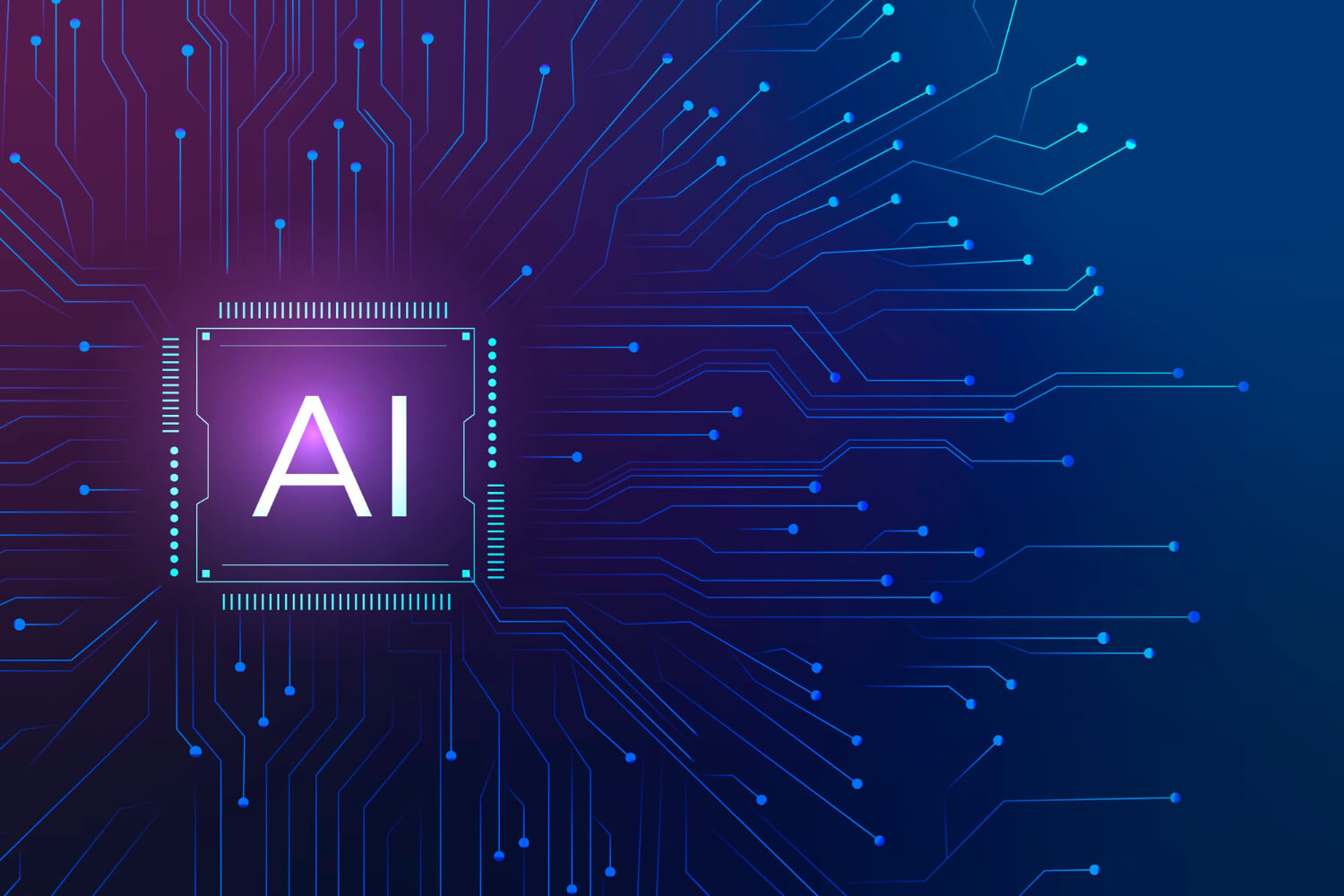GreenTech
AI for GreenTech can transform the industry by maximizing energy utilization, minimizing waste, and enhancing efficiency.
AI For Greentech Solutions Revolutionizing The Industry
The Greentech industry is experiencing a revolutionary transformation through the power of AI. Using advanced algorithms and data analytics, AI optimizes energy usage and streamlines waste management. AI enables accurate demand forecasting, intelligent resource allocation, and smart grid management through machine learning and predictive modeling. It results in reduced environmental impact and cost savings. Furthermore, AI for Greentech Solutions drives the development of renewable energy solutions. They provide proactive environmental monitoring, paving the way for sustainable growth.

Capabilities And Benefits Of AI And ML In GreenTech

Increased Energy Efficiency
AI and ML algorithms help optimize energy consumption patterns in GreenTech, improving operational efficiency and reducing costs.

Improved Resource Management
By analyzing water and land usage data, AI algorithms can improve the management of natural resources. This results in cost savings and environmental benefits.

Enhanced Supply Chain Management
AI and ML are used to optimize supply chain operations, reducing transportation and logistics costs while also minimizing carbon emissions.

More Accurate Predictive Modeling
Advanced predictive modeling techniques can help GreenTech companies forecast energy demand, manage production schedules, and plan for resource allocation.

Better Risk Management
AI techniques can help GreenTech companies identify potential risks, such as changes in weather patterns or natural disasters, and develop contingency plans.

Increased Investment Opportunities
AI for Greentech creates new investment opportunities by improving the accuracy and reliability of financial models. They can attract investors and increase funding for sustainable projects.
AI IoT Use Cases
It is a long established fact that a reader will be distracted by the readable content of a page when looking at its layout. The point of using Lorem Ipsum is that it has a more-or-less normal distribution of letters, as opposed to using 'Content here, content here', making it look like readable English. Many desktop publishing packages and
It is a long established fact that a reader will be distracted by the readable content of a page when looking at its layout. The point of using Lorem Ipsum is that it has a more-or-less normal distribution of letters, as opposed to using 'Content here, content here', making it look like readable English. Many desktop publishing packages and
It is a long established fact that a reader will be distracted by the readable content of a page when looking at its layout. The point of using Lorem Ipsum is that it has a more-or-less normal distribution of letters, as opposed to using 'Content here, content here', making it look like readable English. Many desktop publishing packages and
It is a long established fact that a reader will be distracted by the readable content of a page when looking at its layout. The point of using Lorem Ipsum is that it has a more-or-less normal distribution of letters, as opposed to using 'Content here, content here', making it look like readable English. Many desktop publishing packages and
Why Choose Sharp Tech IT Solution

10+ Years of Experience
Our extensive experience in AI development and implementation gives us a proven track record of success and expertise to meet your business’s AI needs.

Team of 250+ Experts
Employing over 150 individuals, we offer a broad range of skills and knowledge to support your business’s AI requirements, providing a comprehensive solution to meet your needs.

Global Presence
Our international footprint with offices in the USA, UK, and UAE allows us to offer AI solutions and support worldwide, making us an excellent choice for businesses with worldwide operations.

People Driven
We prioritize our employees’ growth and development, ensuring a dedicated and motivated team that is committed to delivering the best AI solutions for your business.
Blogs & Articles

AI-Powered Solutions for Fraud Detection in Healthcare
Fraud in healthcare is a significant and growing concern, costing billions of dollars annually and compromising the quality of care
Frequently Asked Questions
Greentech, also known as green technology or environmental technology, refers to the application of technology and innovation to address environmental challenges and promote sustainability. It encompasses various fields such as renewable energy, clean transportation, waste management, water conservation, and eco-friendly materials, aiming to minimize environmental impact and mitigate climate change.
AI for green energy refers to the utilization of artificial intelligence (AI) technologies in the field of renewable and sustainable energy. AI is employed to optimize the generation, distribution, and consumption of green energy resources such as solar, wind, and hydro power. AI algorithms analyze data from sensors, weather forecasts, and energy grids to improve efficiency, predict energy demand, optimize power generation, and enhance energy management systems, ultimately supporting the transition to a more sustainable and clean energy future.
The key challenges of AI in the energy sector include data quality and availability, as AI models rely on accurate and extensive data for effective analysis. Integration and interoperability of AI systems with existing energy infrastructure and legacy systems can pose challenges. Security concerns related to protecting critical energy infrastructure from cyber threats are another significant challenge. Additionally, regulatory and ethical considerations, as well as the need for skilled AI talent, are important hurdles that need to be addressed for successful implementation of AI in the energy sector.
AI can assist in adjusting supply and demand in the energy sector through several ways. AI algorithms can analyze historical and real-time data to forecast energy demand accurately, taking into account factors such as weather patterns, time of day, and economic indicators. This information helps utilities and energy companies optimize production and distribution, ensuring a balance between supply and demand. AI can also facilitate demand response programs by identifying peak demand periods and implementing strategies to incentivize consumers to reduce their energy consumption during those times.
Artificial intelligence can reduce carbon emissions by optimizing energy usage, improving transportation efficiency, and enhancing renewable energy systems. It enables smart grid management, intelligent traffic control, and predictive maintenance, leading to more sustainable and environmentally friendly practices.







